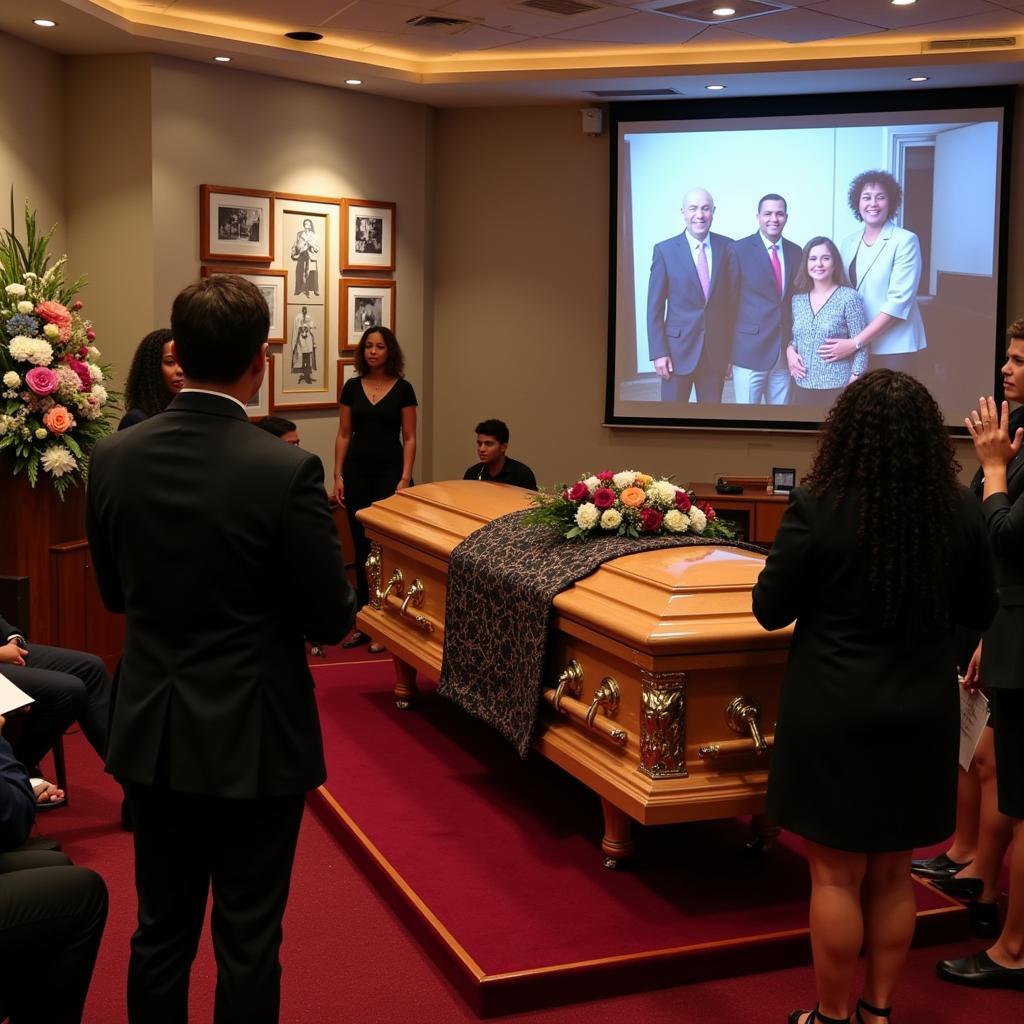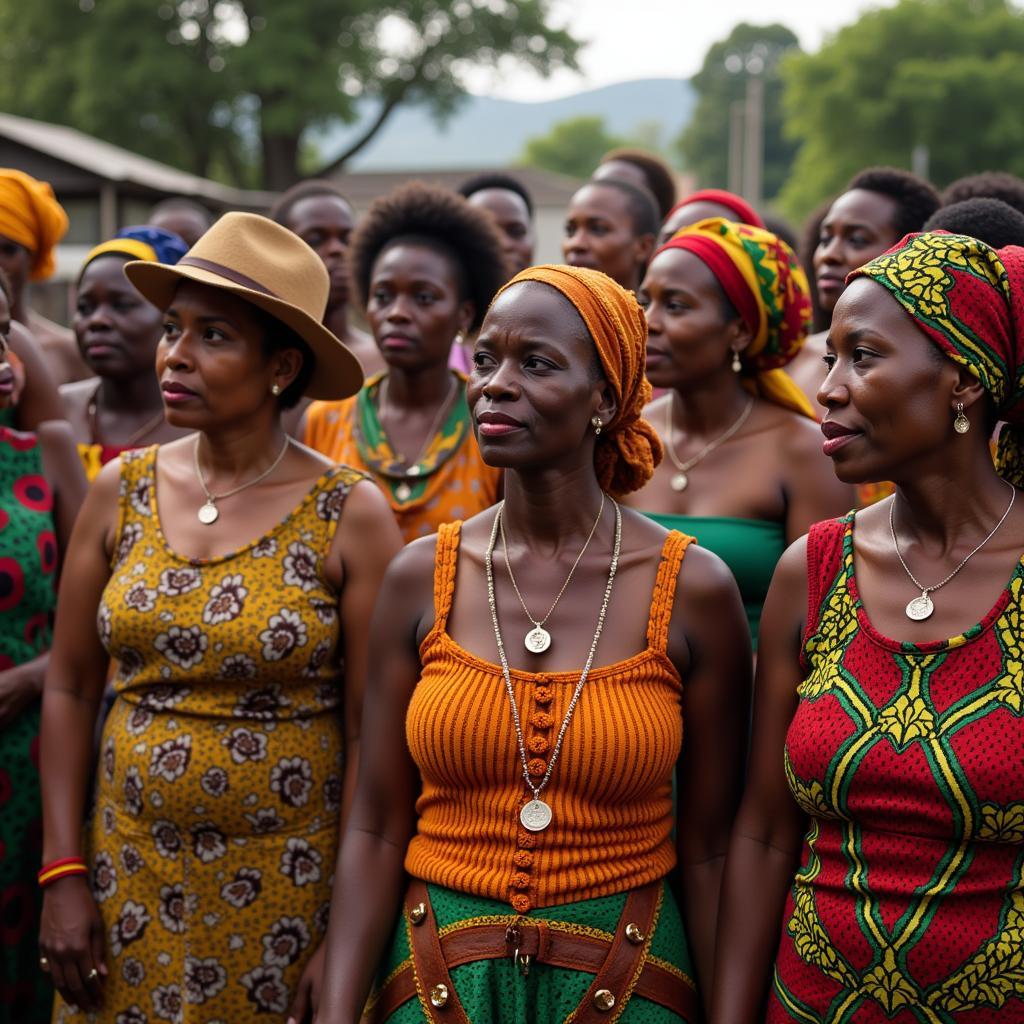Understanding the African American Funeral Tradition
African American Funerals are more than just a somber occasion; they are a vibrant celebration of life, a powerful testament to faith, and a profound recognition of heritage. Rooted in West African traditions and shaped by the experiences of slavery and the Civil Rights Movement, these ceremonies offer a unique lens into the rich tapestry of African American culture. They are deeply spiritual events, imbued with rituals, music, and customs that provide comfort, strength, and a sense of continuity for the bereaved. This article explores the key elements of African American funeral traditions, offering insight into their historical context, cultural significance, and evolving practices.
In the wake of loss, African American communities often turn to african american funeral homes that understand their specific cultural needs. These homes play a vital role in guiding families through the process and ensuring a respectful and meaningful farewell. The specific practices observed within African American funerals often reflect both regional variations and the personal beliefs of the deceased and their family.
The Historical Context of African American Funerals
The origins of African American funeral traditions can be traced back to West Africa, where elaborate rituals and ceremonies marked the transition from life to death. These practices, brought over during the transatlantic slave trade, were adapted and transformed in the context of slavery and its aftermath. Denied the right to mourn openly, enslaved Africans developed coded ways of expressing grief and celebrating the lives of the deceased. These included singing spirituals, storytelling, and clandestine gatherings.
Following emancipation, African American funerals evolved further, becoming important expressions of community solidarity and resilience. They served as a platform for remembering ancestors, honoring the struggle for civil rights, and affirming the strength of the Black community. These gatherings are often a blend of sorrow and joy, reflecting the belief that death is not an end, but a transition to a new realm.
Key Elements of an African American Funeral
African American funerals typically involve several key elements, each with its own symbolic meaning. The wake, often held the night before the funeral, provides an opportunity for family and friends to gather, share memories, and offer condolences. It is often a time of storytelling, reminiscing, and celebrating the life of the deceased. The funeral service itself is usually a religious ceremony, featuring hymns, scripture readings, and eulogies. Music, especially gospel music, plays a central role, providing comfort and inspiration.
After the service, a procession to the burial site takes place, often accompanied by music and expressions of grief and celebration. The repast, a meal shared after the burial, is another essential part of the tradition, offering a time for fellowship and reflection. It’s a chance for the community to come together, share stories, and offer support to the bereaved family. Many families find comfort in sharing traditional dishes like those discussed in african food habits during the repast.
The Role of Music and Spirituals
Music plays a particularly significant role in African American funerals. Spirituals, born out of the experience of slavery, often carry powerful messages of hope, resilience, and faith. Gospel music, with its uplifting melodies and powerful lyrics, offers solace and inspiration. These musical traditions create a unique atmosphere of both mourning and celebration. They reflect the belief that death is not an ending, but a transition to a better life.
Modern Adaptations and Variations
While traditional practices remain important, African American funeral customs are constantly evolving. Modern funerals may incorporate personalized elements that reflect the unique life and interests of the deceased. These might include displays of photographs, videos, or personal mementos. The use of african american obituary templates can help families create personalized and meaningful tributes to their loved ones. Some families opt for cremation rather than burial, while others choose to incorporate elements of their ancestral traditions. These adaptations reflect the dynamic nature of culture and the individual preferences of families.
Celebrating Life and Legacy
Ultimately, African American funerals are about celebrating life and legacy. They are a time to remember the contributions of the deceased, to share stories and memories, and to offer support to the bereaved. They are a testament to the strength, resilience, and deep spirituality of the African American community. These ceremonies are a powerful reminder of the enduring legacy of African culture, adapted and transformed over generations to provide comfort, strength, and a sense of continuity in the face of loss. Just as traditions like the african folk dance gif celebrate life through movement, funerals celebrate life through remembrance.
 African American Funeral Modern Adaptations
African American Funeral Modern Adaptations
Conclusion
African American funerals are powerful expressions of culture, faith, and community. Rooted in a rich history and constantly evolving to meet the needs of contemporary families, these ceremonies offer a unique window into the heart of the African American experience. They are not just about mourning loss, but about celebrating life, honoring legacy, and affirming the enduring strength of the human spirit. Remember, when considering catering for a post-funeral gathering, traditional treats like african american tea cakes can add a comforting and familiar touch. Understanding these traditions provides valuable insight into the rich tapestry of African American culture and its enduring power to provide solace and strength in the face of loss.
FAQ
- What is a repast?
- What is the significance of music in African American funerals?
- What are some common traditions observed at African American funerals?
- How have African American funeral traditions evolved over time?
- What is the role of the funeral home in African American communities?
- What is the significance of the wake in African American funerals?
- How can I offer support to a grieving family during an African American funeral?
Common Scenarios and Questions:
-
Scenario: Planning a funeral for a loved one who valued their African heritage.
-
Question: How can I incorporate traditional African elements into the funeral service?
-
Scenario: Attending an African American funeral for the first time.
-
Question: What is appropriate attire and etiquette to observe?
-
Scenario: Writing an obituary for a family member who was an active member of the African American community.
-
Question: How can I best honor their legacy and contributions in the obituary?
Further Exploration:
Explore related topics on our website, such as the history of African American burial societies and the role of religion in African American funerals.
Call to Action:
For assistance with funeral arrangements, pre-planning, grief counseling, or any other related services, please contact us at Phone: +255768904061, Email: [email protected], or visit us at Mbarali DC Mawindi, Kangaga, Tanzania. We offer 24/7 customer support.


